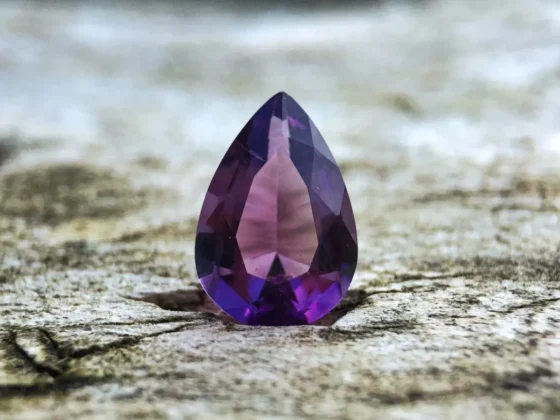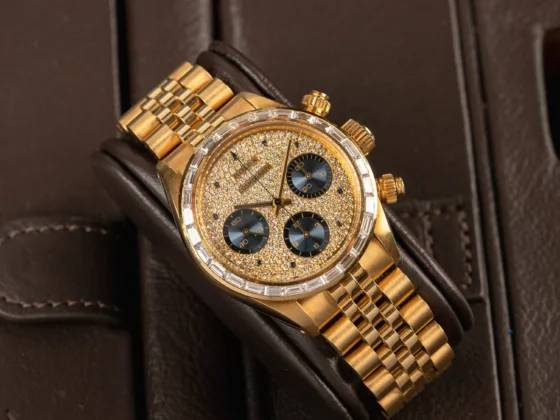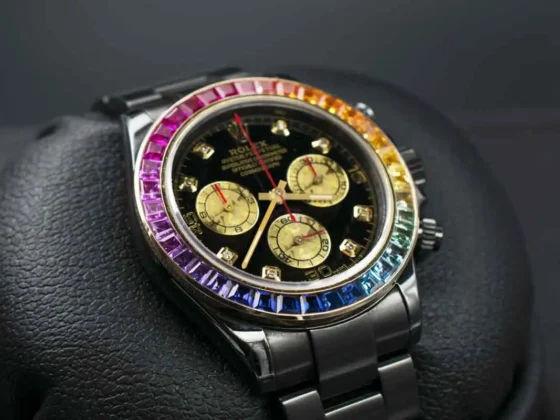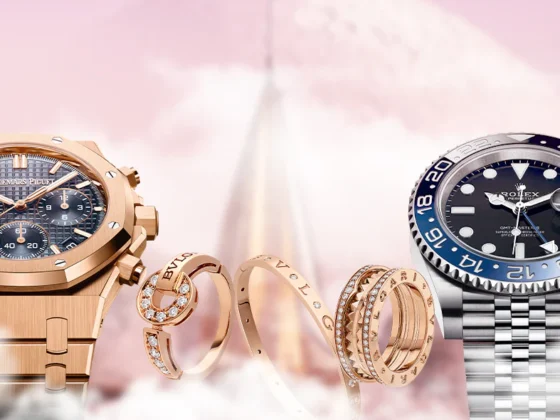In an era where sustainability is at the forefront of consumer priorities, the luxury watch industry is evolving. Today, leading watchmakers are rethinking how their timepieces are crafted, and one of the most exciting developments is the incorporation of recycled materials. From metals to plastics, luxury brands are leveraging innovative methods to reduce their environmental footprint without compromising on design, quality, or prestige.
This article will explore how the use of recycled materials is becoming a hallmark of luxury watchmaking and why it represents the future of the industry. We’ll also highlight how MaisonDesigners, a premier platform for pre-owned luxury timepieces, plays a crucial role in sustainability by extending the life of these exceptional watches.
1. The Rising Demand for Sustainability in Luxury
Sustainability is no longer a niche concern—it’s a mainstream expectation. Today’s luxury consumers are more environmentally conscious than ever before, pushing brands to adopt eco-friendly practices. In response, the luxury watch industry, known for its meticulous craftsmanship and use of premium materials, is now embracing sustainable production methods, including the use of recycled metals, ocean plastics, and upcycled materials in watch design.
Brands like Omega, Cartier, and IWC have already begun to integrate recycled materials into their latest collections, reflecting a broader trend across the luxury sector. This shift not only helps reduce waste but also appeals to a new generation of buyers who value environmental responsibility alongside exclusivity and heritage.
2. Recycled Metals: A Sustainable Luxury
One of the most significant ways that watch brands are incorporating sustainability is through the use of recycled metals. Given that precious metals like gold, silver, and platinum are a cornerstone of luxury timepieces, recycling these materials has become a crucial part of reducing the environmental impact of watchmaking.
IWC Schaffhausen is one such brand leading the charge, having introduced watches crafted from recycled steel in its “Ocean Plastics” collection. Similarly, Cartier has committed to using 100% recycled gold across its watch and jewelry lines, ensuring that these luxury pieces not only retain their aesthetic appeal but also reflect a commitment to sustainability.
These initiatives are not just about environmental responsibility; they also serve as a value proposition for eco-conscious consumers. Recycled materials maintain the high standards of luxury while offering an ethical alternative to newly mined resources.
3. Ocean Plastics and Upcycled Materials
Another growing trend is the use of ocean plastics and other upcycled materials in watchmaking. Breitling has pioneered this approach with its Superocean Heritage II Chronograph, which features a strap made entirely from recycled ocean plastic. This innovative use of materials highlights how luxury brands are taking responsibility for ocean pollution while offering unique, environmentally-friendly designs.
In addition to ocean plastics, some watchmakers are experimenting with upcycled materials like carbon fiber and composite materials salvaged from other industries. These materials not only reduce waste but also add a modern, cutting-edge look to luxury watches, aligning with the tastes of younger, tech-savvy buyers.
The use of upcycled materials is especially appealing to consumers who want their luxury purchases to align with their environmental values. By choosing a timepiece made from recycled or upcycled materials, they are contributing to a larger movement toward sustainability without sacrificing style or exclusivity.
4. MaisonDesigners: Extending the Life of Luxury Timepieces
While many luxury watch brands are moving toward more sustainable production methods, another key aspect of sustainability in the luxury sector is extending the life cycle of existing products. This is where platforms like MaisonDesigners play an essential role. By offering pre-owned luxury watches, MaisonDesigners provides consumers with access to high-quality, authenticated timepieces while supporting sustainability through reuse.
The resale market for luxury watches has grown significantly in recent years, driven by the demand for rare and limited-edition timepieces as well as a growing awareness of the environmental benefits of buying pre-owned. MaisonDesigners is at the forefront of this movement, offering an extensive collection of pre-owned watches from prestigious brands like Rolex, Audemars Piguet, and Patek Philippe.
When customers purchase a pre-owned luxury watch, they are effectively reducing the demand for new resources, contributing to the circular economy. MaisonDesigners further enhances the value of pre-owned watches by ensuring that each piece is meticulously evaluated, restored, and authenticated to meet the highest standards. This commitment to quality means that buying pre-owned is not only a more sustainable option but also a savvy investment for collectors.
5. The Future of Luxury Watchmaking: A Circular Economy
The use of recycled materials is just one part of a broader shift toward sustainability in luxury watchmaking. As brands continue to innovate, the concept of a circular economy—where products are designed to be reused, repaired, and recycled—will play an increasingly important role in the industry.
The luxury watch sector is uniquely positioned to embrace the circular economy. Watches are often passed down through generations, and their value typically increases over time, particularly for limited-edition models or pieces with historical significance. By investing in a pre-owned luxury watch from a trusted platform like MaisonDesigners, consumers can participate in this sustainable cycle while owning a timepiece that retains both its aesthetic appeal and market value.
6. The Environmental Benefits of Pre-Owned Luxury
One of the most compelling reasons to choose pre-owned luxury watches is the significant environmental benefits. The production of new luxury watches often involves the extraction of precious metals and gemstones, processes that can be resource-intensive and environmentally damaging. By opting for a pre-owned watch, consumers reduce the demand for newly mined materials and help conserve natural resources.
Platforms like MaisonDesigners make it easy for consumers to find high-quality, authenticated pre-owned watches, offering both environmental and financial advantages. In addition to reducing waste, buying pre-owned also offers the opportunity to own rare and discontinued models that are no longer available in the primary market.
Conclusion
As the luxury watch industry continues to evolve, the incorporation of recycled materials and the growth of the pre-owned market are driving forces in the move toward sustainability. Leading brands are finding innovative ways to craft beautiful timepieces that align with the values of modern, eco-conscious consumers. At the same time, platforms like MaisonDesigners are ensuring that luxury watches retain their allure and value by offering consumers access to pre-owned pieces that contribute to a more sustainable future.
With the combined efforts of pioneering brands and platforms, the future of luxury watchmaking is not only green but also timeless.





